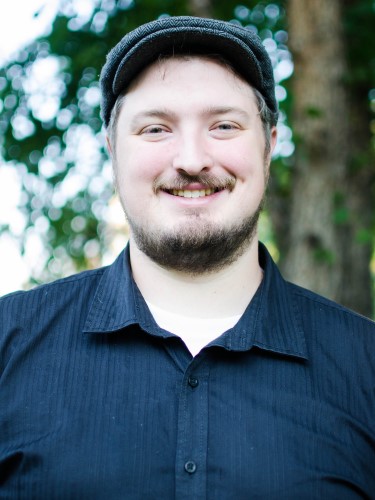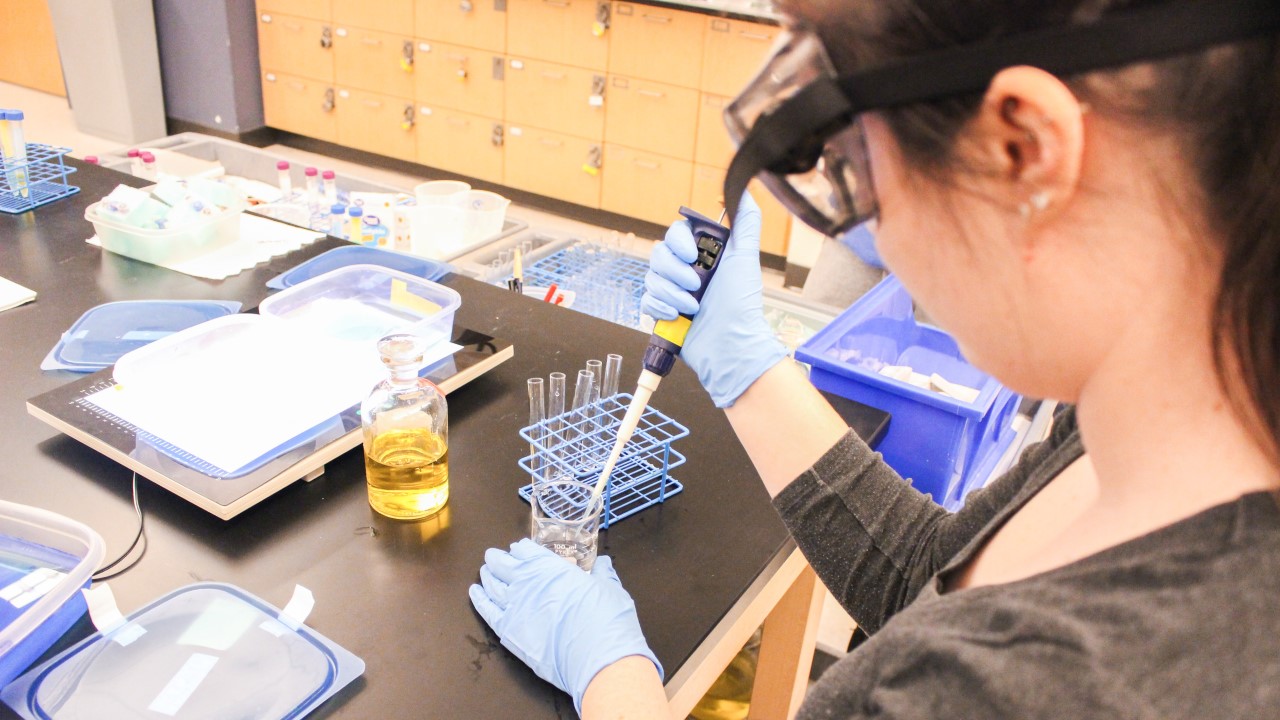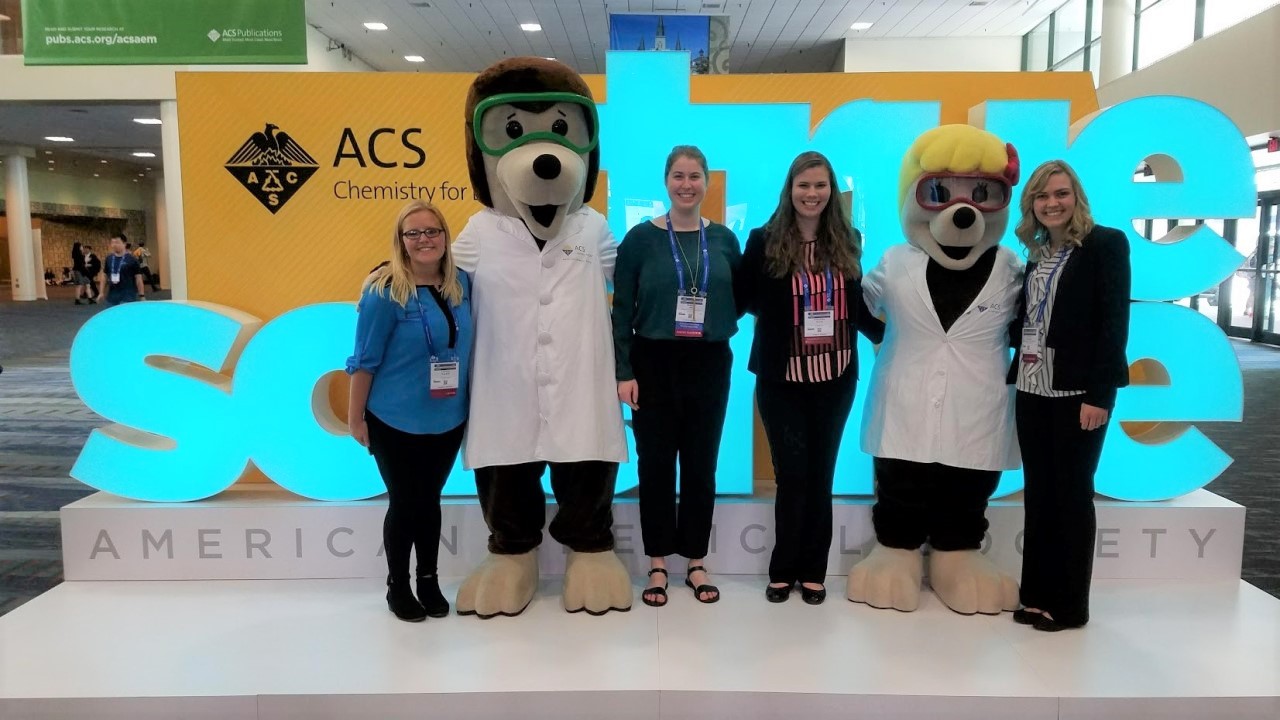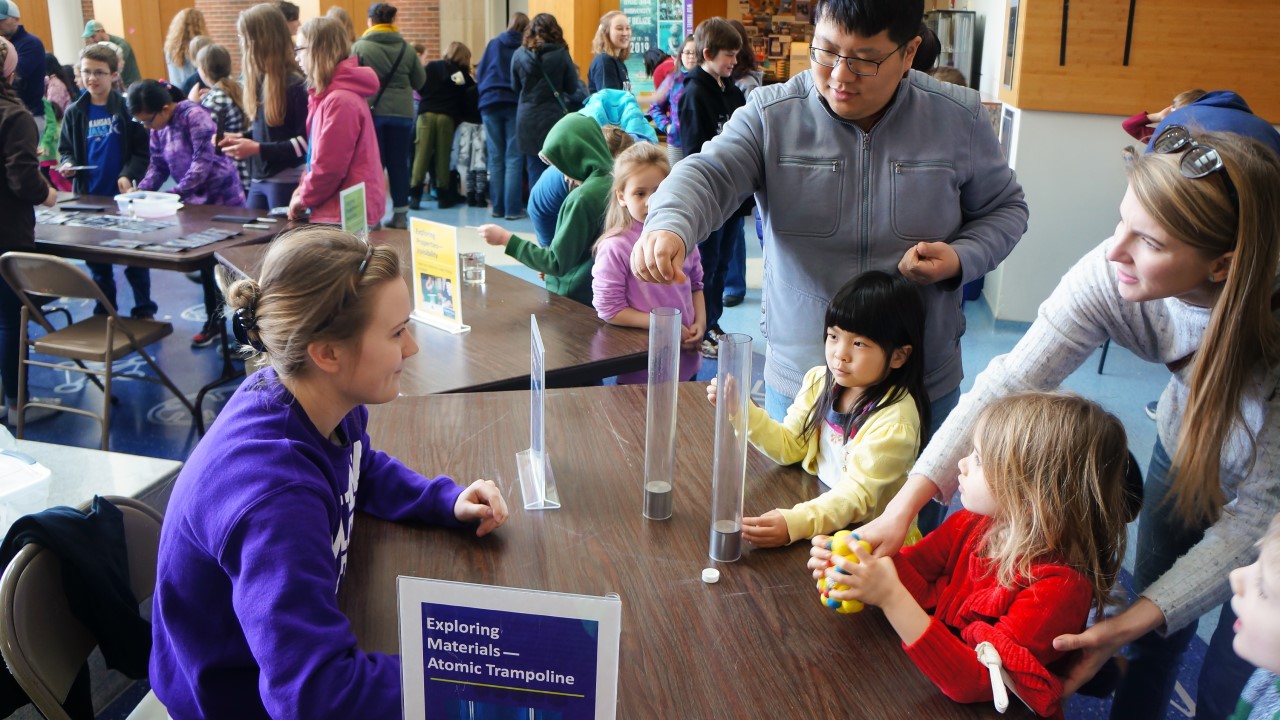If you enjoy studying how everything around us is connected and how living things run, you could harness those passions into a career as a chemist.
I think the most meaningful connections a student can make during their college career come from watching their professors be passionate about what they teach.
I love this field so much that I want to share it with others, especially future chemists. Let me tell you about WSU’s Biochemistry program.
- Our bachelor’s degree sets up students to succeed and be ready for either employment or medical school.
- Over the past 5 years, 95% of our graduates have gotten a job in the field or admitted to post-graduate programs.
- Inside the classroom, you’ll have fun diving into labs that match your interests and working with expensive instruments.
- You’ll also get plenty of hands-on opportunities outside the classroom through year-round research and community outreach opportunities.

Jonathon Mauser, Ph.D.
I’ve been a professor for 6 years, and it’s still a beautiful thing to watch students understand how everything is connected through this common language of Biochemistry.
Jump to…
Why I’m Passionate about This Field
It’s one of those things like falling in love: when you fall in love with someone, you can’t stop thinking about them and you see them wherever you go. When I discovered Biochemistry after taking more science classes in college, that’s exactly what happened.
While other people saw the leaves changing color in the fall, I saw plants recovering nitrogen to store for wintertime and avoid catching diseases. While other people saw individuals taking medicine, I saw individuals treating chemical imbalances. That’s Biochemistry.
Understanding why things are happening makes life less scary. It comforts me as a human being, not just as a scientist, to know there’s a physical explanation behind everything.
Let me tell you more about our Biochemistry program.

What We Offer at WSU
Across our Chemistry programs, students get to work with expensive instrumentation in state-of-the-art labs. This is especially the case in Biochemistry.
One example is the NMR, which allows students to solve structures of molecules. A group of my students are currently finding the sequence of snake venom protein on the NMR and using that data to identify what snake the venom came from.
We also have the HPLC, which is a liquid separation technique. Students measure the levels of antidepressant medication in urine samples donated from Winona Health and they analyze whether the antidepressant dosage was accurate. This is an experience they wouldn’t get at larger schools because those institutions have technicians to run similar tests.
A third example is the GC-FID, which measures the amount of alcohol in blood. After touring the Bureau of Criminal Apprehension one year with Chemistry Club, I instantly wanted to incorporate this technique in my lab. I met with their lab director, they sent me their protocol, and now my students do it exactly like the experts in the Minneapolis crime lab.
What You’ll Do
On the first day of class each semester, I give students a menu of different labs I offer and students pick three they’re most interested in. If something on my menu doesn’t quite align with what a student has in mind, they can tweak my labs however they’d like.
This allows me to individualize a student’s experience while they’re here and have them do something they genuinely care about. Not to mention, students can learn transferable skills and confirm what they had in mind either is or isn’t what they want to do as a career.
Previous labs have included students comparing the fat content of conventional and free-range eggs to figure out which is healthier to eat, along with scoring the spiciness of chili peppers based on the Scoville scale just like the experts do at the international level.
I also let students propose their own lab ideas. One year, a student who worked at a clinic wanted to know the contents of their flu shot after hearing people complain it was bad for them. So, he analyzed the flu shot, knew every protein and heavy metal in it, and concluded that there wasn’t anything harmful in the formula.
Since offering individualized labs, I’ve noticed that students are excited to come to lab. I even have students who want to stay after hours and continue working on their projects.
Alumni Shoutout: Aidan Nelson
My most useful takeaway from WSU had to be the research opportunities. Being one of Dr. Mauser’s research students taught me how to work independently and problem-solve. It also helped me get my first job!
I now work as a quality control technician at a laboratory where we make cosmetic products—from sunscreens to hand sanitizers to lotions and more—for companies like Pacifica, Yesto, Trader Joes, and Sun Bum.
I personally turn raw materials like chemicals into cosmetic products. I also test every batch we make to ensure nothing harmful is growing. Between those two roles, I help guarantee anything coming in or leaving the facility meets quality standards.
I’ve been interested in cosmetics for as long as I can remember, so I was super excited to combine that passion with science and turn it into a career that I love.
Dr. Mauser made learning fun and always went out of his way to help the material make more sense. He’s the reason I studied Biochemistry.
Experiences You’ll Get

Research
Students can also do independent research projects in the lab that are open-ended and don’t have a particular outcome in mind.
Some of my research students are identifying when in the cell division process do mutated fruit fly proteins turn cancerous. Other students are trying to create an ideal cocktail of chemotherapies after treating glioblastoma cells with steroids and other drugs and analyzing the reaction.
The most important part of the scientific method is communication—we’ve got to tell people what we do, so others can build on it. That’s why I take my research students to the national meeting of the American Chemical Society whenever I can. And it’s so fun to see them get quizzed about their work by world experts.

Community Outreach
Outside of research, we try to get people in the community—especially kids—excited about science without the pressures of being graded or making a mistake.
In the past, we’ve hosted an event near Halloween where multiple science clubs come together and do a variety of demonstrations and activities in the Science Laboratory Center. Then we wrapped up the event by dropping a pumpkin frozen in liquid nitrogen from a tall height outside and watching it shatter.
We also visit science classrooms and lead college-level labs, like having younger students swab their DNA and use test papers to learn more about themselves. Our visits give elementary- and middle-schoolers the chance to work with equipment they may not get to until college.
I think it’s important that students understand the value of community service because part of what we do as scientists is share out of the goodness of our hearts. That’s the selflessness of science.
The Professor Pop-Up blog series explores WSU’s academic programs through the eyes of talented professors, ambitious current students, and thriving alumni. Read more stories from the Professor Pop-Up series.